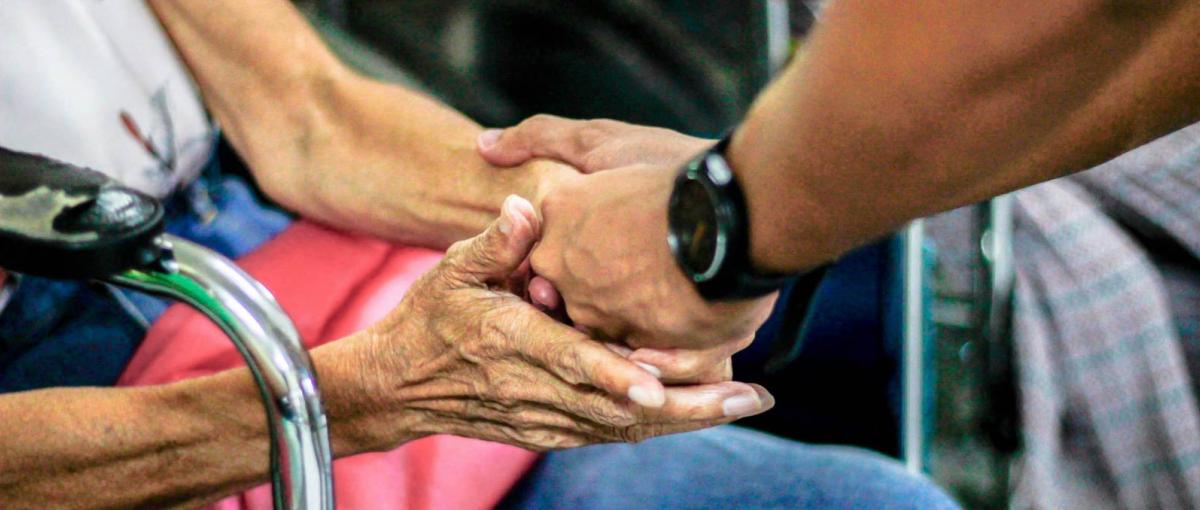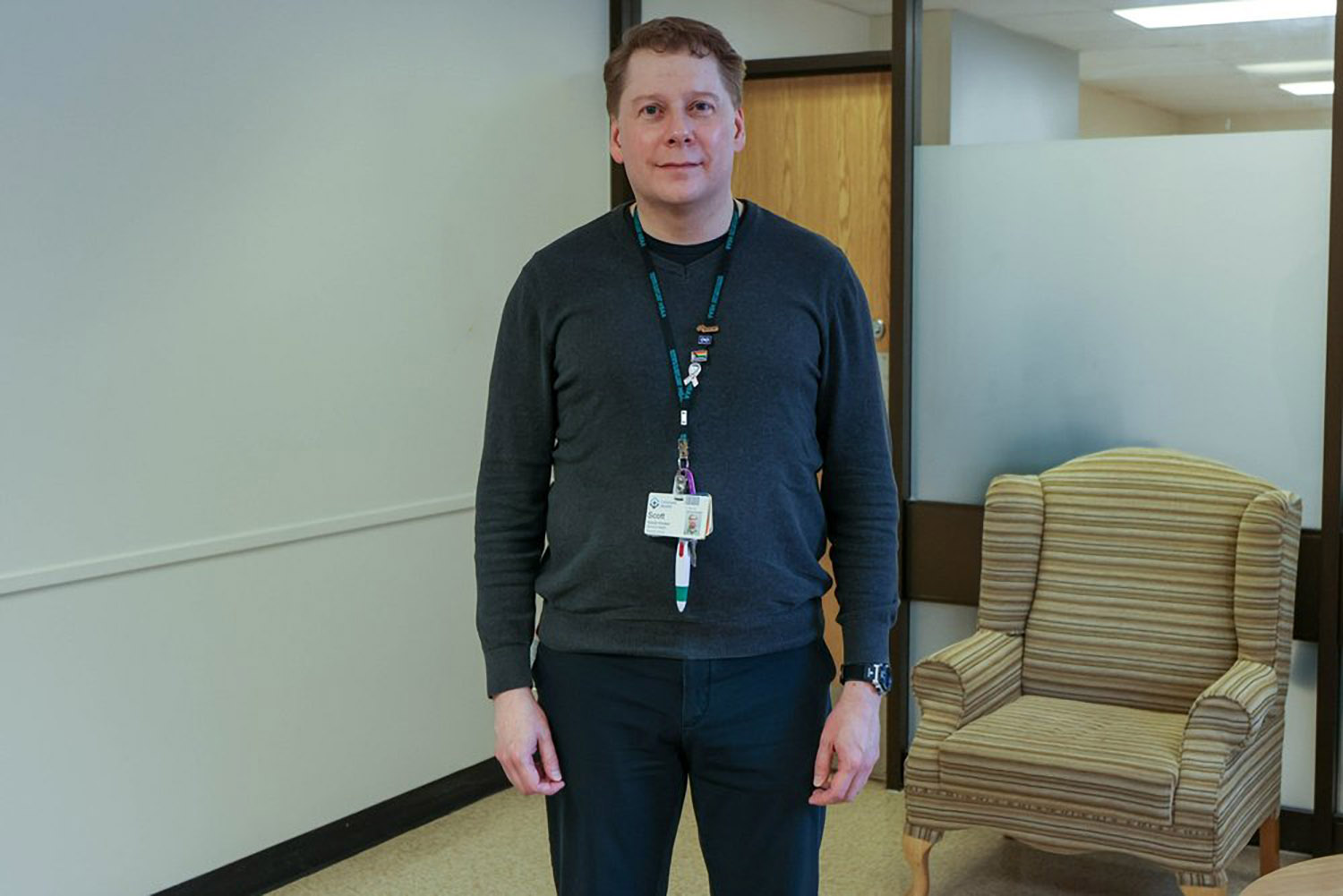Cable Family Compassionate Support Endowment Fund enhances quality of life for patients and families at Covenant sites

August 29, 2024
By Ben Freeland, communications advisor
For the past 15 years, Scott Stewart, a Covenant Health social worker, has been working to improve the quality of life for patients in long-term care at the Edmonton General Continuing Care Centre. One aspect of this role is overseeing the disbursement of charitable funds available to the centre for various nonmedical purposes.
“Charitable giving has greatly enhanced our ability to provide quality recreation services at the Edmonton General for a number of years, allowing us to offer unit- and facility-based activities for most of our residents because the majority of people in our long-term care fit the parameters of those in need,” says Scott.
A key source of this funding is the Covenant Foundation’s Cable Family Compassionate Support Endowment Fund, a major cornerstone of Covenant’s charitable funding ecosystem. Established in 2004 by Edmonton’s Cable family, the fund has disbursed over $266,000 since 2017 in the form of nonmedical goods and services to 632 patients at the Edmonton General, the Misericordia Community Hospital and the Grey Nuns Community Hospital, greatly enhancing their quality of life.
While originally focused on the Edmonton General stemming from a personal connection between the centre and the donating family, the fund has since been expanded to include all 22 sites supported by the foundation, matching all the donations in kind.
Scott says the Cable Fund is particularly important when it comes to improving the quality of life for patients in long-term care, patients whose families often struggle to afford basic medical necessities, let alone extras that benefit their overall well-being and happiness. In turn, the fund makes life easier for him and other social workers who are constantly seeking to turn a penny into a dime to enhance their patients’ well-being.

Scott Stewart and other Covenant Health social workers use the Cable Family Compassionate Support Endowment Fund to assist residents and families in need.
Recreational spending enabled by the Cable Fund has in the past covered exercise and entertainment equipment, celebrations (such as the Edmonton General’s Winter Wonderland event) and site visits by musicians and other entertainers. In addition, monies donated through the Cable Fund have been used to provide new clothing, shoes (including expensive orthopedic footwear), haircuts and other small but significant items that improve patients’ comfort and dignity of care.
Intended as a fund of last resort for patients in need who are otherwise ineligible for financial support, the Cable Fund operates entirely under the radar, with the patients themselves not being informed that they’re recipients. Disbursement of the funds is co-ordinated by Covenant social workers, whose job is to assess patients’ income level upon admission and intervene on their behalf when they judge a need exists.
"We don’t tell patients where their new clothes or shoes are coming from. We just tell them they don’t have to worry about it. If they press us on it, we’ll tell them that there are certain charitable monies available to us and that the items have come through those."
Social worker, Edmonton General Continuing Care Centre
The COVID-19 pandemic was a particularly challenging time for everyone involved in long-term care, from patients and families to medical professionals, social workers and others, says Scott. The Cable Fund was an especially vital lifeline for many patients, particularly during the first 18 months when the Edmonton General and other hospitals were under lockdown, he says.
“The fund was absolutely essential for maintaining stimulation and socialization for patients during lockdown because we had to create all this from within,” he says. “We had to get very creative with our recreational programming, using our own staff to meet the stimulation and socialization needs of our patients because we couldn’t do our usual unit- and facility-based activities.
“We really focused on individual activities, and we were able to use the fund to purchase cards, books and the like so that people could be with the recreation therapist or recreation therapy assistant and they could still have that stimulation that they needed as COVID progressed. If it hadn’t been for this endowment fund, we would have been in real dire straits.”
While the Cable Fund has been a crucial lifeline for Scott and his team at the Edmonton General, and for his counterparts at the Grey Nuns and Misericordia hospitals, he emphasizes that more help is always needed.
“Continuing care across the spectrum is chronically underfunded, especially when it comes to nonmedical needs,” Scott says.
“Needs related to recreation and socialization often fall by the wayside because we're usually focused strictly on health care rather than the whole person. At Covenant, we always talk about striving to minister to the whole person, not just the body but also the mind and soul. Donations of this kind, like the generosity that we've seen from this one family, are so important for the ongoing health and quality of life of the individuals who are living in long-term care and are essential to our meeting this mandate to minister to the whole person. People are more than just their medical needs.”